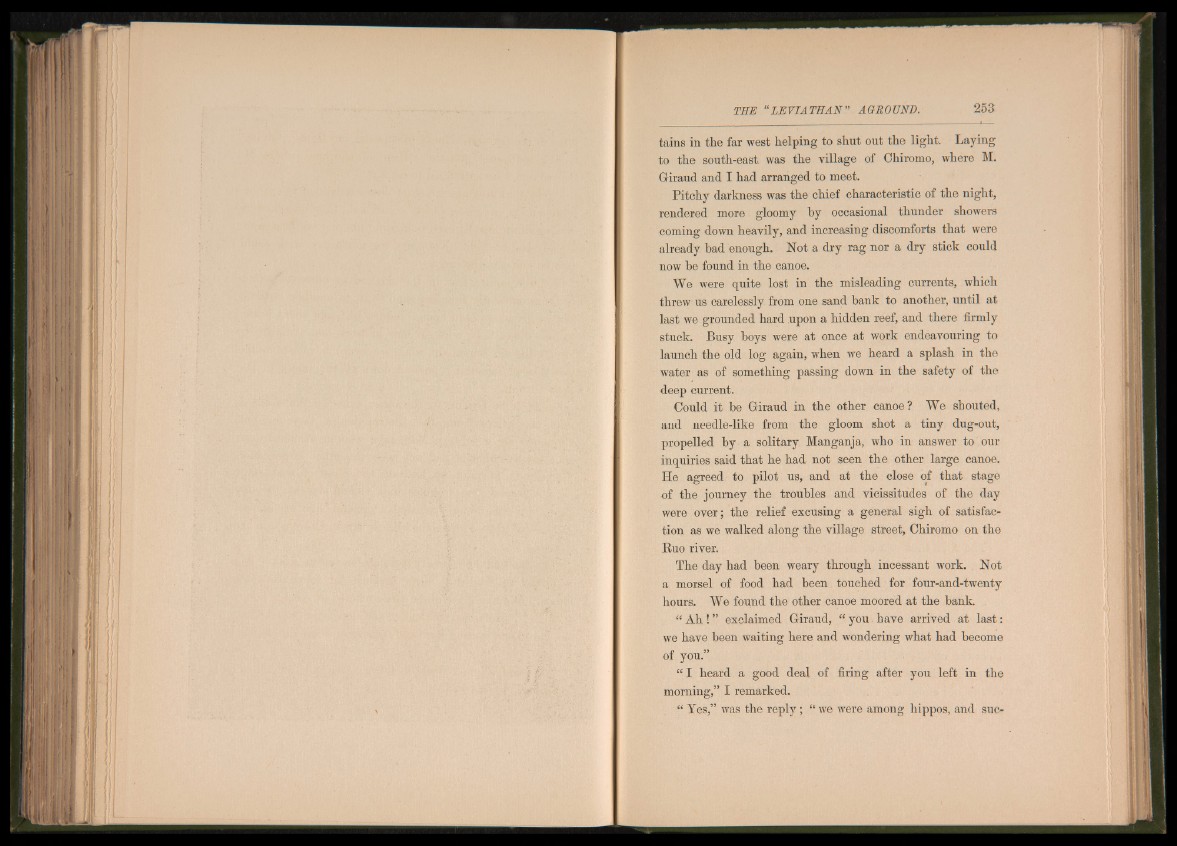
tains in the far west helping to shut out the light. Laying
to the south-east was the village of Chiromo, where M.
Giraud and I had arranged to meet.
Pitchy darkness was the chief characteristic of the night,
rendered more gloomy by occasional thunder showers
coming down heavily, and increasing discomforts that were
already bad enough. Not a dry rag nor a dry stick could
now be found in the canoe.
We were quite lost in the misleading currents, which
threw us carelessly from one sand bank to another, until at
last we grounded hard .upon a hidden reef, and there firmly
stuck. Busy boys were at once at work endeavouring to
launch the old log again, when we heard a splash in the
water as of something passing down in the safety of the
deep current.
Could it be Giraud in the other canoe? We shouted,
and needle-like from the gloom shot a tiny dug-out,
propelled by a solitary Manganja, who in answer to our
inquiries said that he had not seen the other large canoe.
He agreed to pilot us, and at the close of that stage
of the journey the troubles and vicissitudes of the day
were over; the relief excusing a general sigh of satisfaction
as we walked along the village street, Chiromo on the
Euo river.
The day had been weary through incessant work. Not
a morsel of food had been touched for four-and-twenty
hours. We found the other canoe moored at the bank.
1 Ah ! ” exclaimed Giraud, “ you have arrived at la s t:
we have been waiting here and wondering what had become
of you.”
“ I heard a good deal of firing after you left in the
morning,” I remarked.
“ Yes,” was the reply; “ we were among hippos, and sue